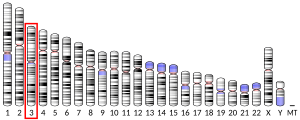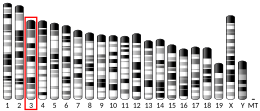IFT80
Appearance
| IFT80 | |||||||||||||||||||||||||||||||||||||||||||||||||||
|---|---|---|---|---|---|---|---|---|---|---|---|---|---|---|---|---|---|---|---|---|---|---|---|---|---|---|---|---|---|---|---|---|---|---|---|---|---|---|---|---|---|---|---|---|---|---|---|---|---|---|---|
| Identifiers | |||||||||||||||||||||||||||||||||||||||||||||||||||
| Aliases | IFT80, ATD2, SRTD2, WDR56, intraflagellar transport 80, FAP167 | ||||||||||||||||||||||||||||||||||||||||||||||||||
| External IDs | OMIM: 611177; MGI: 1915509; HomoloGene: 12253; GeneCards: IFT80; OMA:IFT80 - orthologs | ||||||||||||||||||||||||||||||||||||||||||||||||||
| |||||||||||||||||||||||||||||||||||||||||||||||||||
| |||||||||||||||||||||||||||||||||||||||||||||||||||
| |||||||||||||||||||||||||||||||||||||||||||||||||||
| |||||||||||||||||||||||||||||||||||||||||||||||||||
| Wikidata | |||||||||||||||||||||||||||||||||||||||||||||||||||
| |||||||||||||||||||||||||||||||||||||||||||||||||||
Intraflagellar transport protein 80 homolog (IFT80), also known as WD repeat-containing protein 56, is a protein that in humans is encoded by the IFT80 gene.[5][6]
Function
[edit]IFT80 is part of the intraflagellar transport complex B and is necessary for the function of motile and sensory cilia.[5]
Clinical significance
[edit]Mutations in the IFT80 gene are associated with asphyxiating thoracic dysplasia.[6]
References
[edit]- ^ a b c GRCh38: Ensembl release 89: ENSG00000068885 – Ensembl, May 2017
- ^ a b c GRCm38: Ensembl release 89: ENSMUSG00000027778 – Ensembl, May 2017
- ^ "Human PubMed Reference:". National Center for Biotechnology Information, U.S. National Library of Medicine.
- ^ "Mouse PubMed Reference:". National Center for Biotechnology Information, U.S. National Library of Medicine.
- ^ a b "Entrez Gene: intraflagellar transport 80 homolog (Chlamydomonas)".
- ^ a b Beales PL, Bland E, Tobin JL, Bacchelli C, Tuysuz B, Hill J, Rix S, Pearson CG, Kai M, Hartley J, Johnson C, Irving M, Elcioglu N, Winey M, Tada M, Scambler PJ (June 2007). "IFT80, which encodes a conserved intraflagellar transport protein, is mutated in Jeune asphyxiating thoracic dystrophy". Nat. Genet. 39 (6): 727–9. doi:10.1038/ng2038. PMID 17468754. S2CID 8920064.
Further reading
[edit]- Nakayama M, Kikuno R, Ohara O (2002). "Protein-protein interactions between large proteins: two-hybrid screening using a functionally classified library composed of long cDNAs". Genome Res. 12 (11): 1773–84. doi:10.1101/gr.406902. PMC 187542. PMID 12421765.
- Huang W, Kane JK, Li MD (2008). "Identification and characterization of a long isoform of human IFT80, IFT80-L". Biochem. Biophys. Res. Commun. 373 (4): 653–8. doi:10.1016/j.bbrc.2008.06.085. PMID 18601909.
- Muzny DM, Scherer SE, Kaul R, et al. (2006). "The DNA sequence, annotation and analysis of human chromosome 3". Nature. 440 (7088): 1194–8. Bibcode:2006Natur.440.1194M. doi:10.1038/nature04728. PMID 16641997.
- Strausberg RL, Feingold EA, Grouse LH, et al. (2002). "Generation and initial analysis of more than 15,000 full-length human and mouse cDNA sequences". Proc. Natl. Acad. Sci. U.S.A. 99 (26): 16899–903. Bibcode:2002PNAS...9916899M. doi:10.1073/pnas.242603899. PMC 139241. PMID 12477932.
- Nagase T, Kikuno R, Ishikawa KI, et al. (2000). "Prediction of the coding sequences of unidentified human genes. XVI. The complete sequences of 150 new cDNA clones from brain which code for large proteins in vitro". DNA Res. 7 (1): 65–73. doi:10.1093/dnares/7.1.65. PMID 10718198.
This article incorporates text from the United States National Library of Medicine, which is in the public domain.



